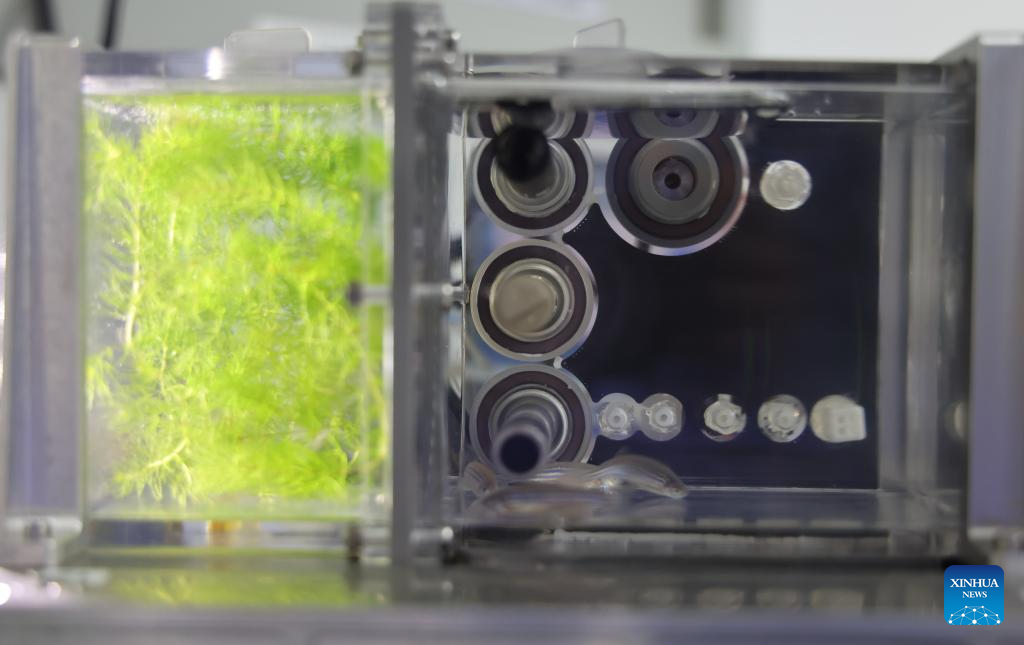
This photo taken on April 25, 2024 shows a backup version of the aquatic ecosystem. The three taikonauts aboard China's Shenzhou-18 spaceship have entered the country's space station and met with another taikonaut trio on Friday, starting a new round of in-orbit crew handover.
A unique task for the taikonauts of Shenzhou-18 is to create an "aquarium" and raise fish in zero gravity.
They will create a simplified version of an aquatic ecosystem using zebrafish and algae to study how the space environment affects their growth and system balance. (Xinhua/Jin Liwang)
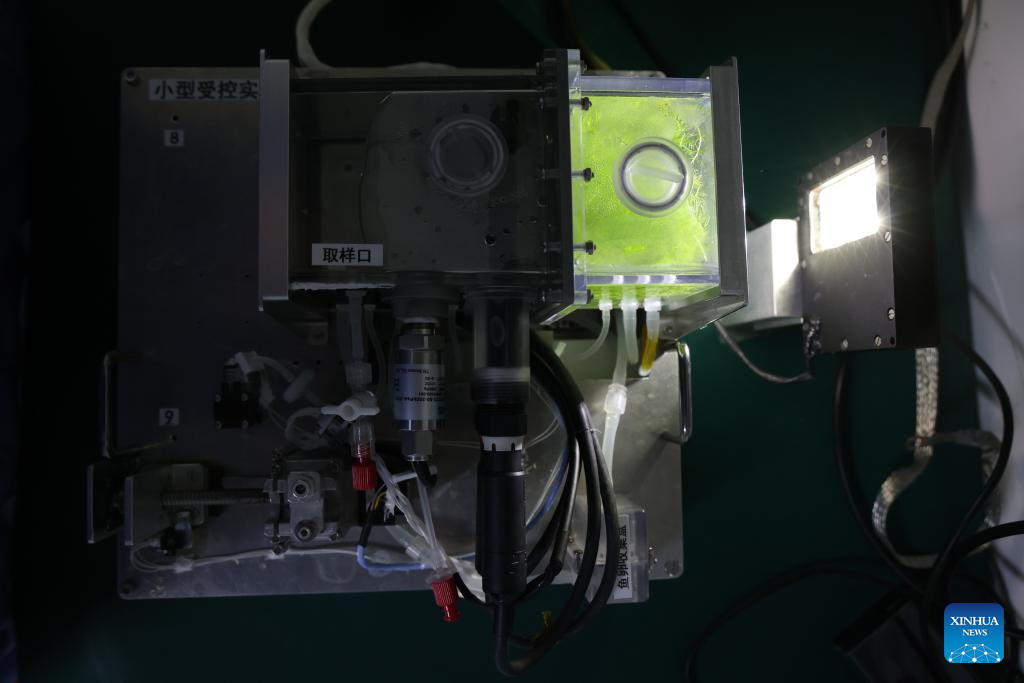
This photo taken on April 25, 2024 shows a backup version of the aquatic ecosystem. The three taikonauts aboard China's Shenzhou-18 spaceship have entered the country's space station and met with another taikonaut trio on Friday, starting a new round of in-orbit crew handover.
A unique task for the taikonauts of Shenzhou-18 is to create an "aquarium" and raise fish in zero gravity.
They will create a simplified version of an aquatic ecosystem using zebrafish and algae to study how the space environment affects their growth and system balance. (Xinhua/Jin Liwang)
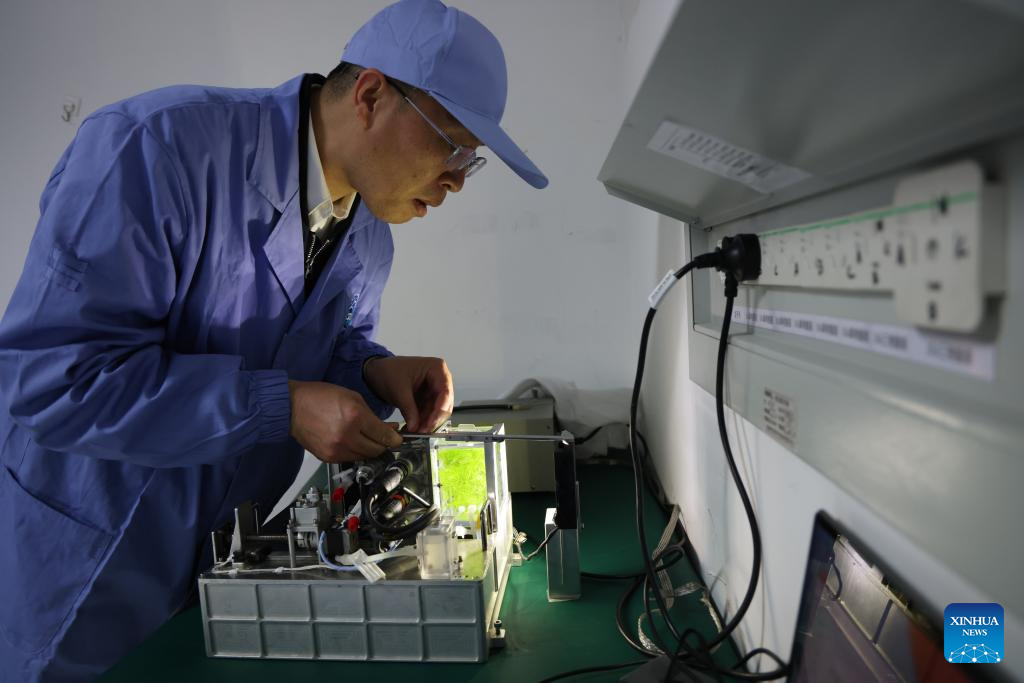
Researcher Wang Gaohong prepares the backup version of the aquatic ecosystem at Jiuquan Satellite Launch Center in northwest China, April 25, 2024. The three taikonauts aboard China's Shenzhou-18 spaceship have entered the country's space station and met with another taikonaut trio on Friday, starting a new round of in-orbit crew handover.
A unique task for the taikonauts of Shenzhou-18 is to create an "aquarium" and raise fish in zero gravity.
They will create a simplified version of an aquatic ecosystem using zebrafish and algae to study how the space environment affects their growth and system balance. (Xinhua/Jin Liwang)
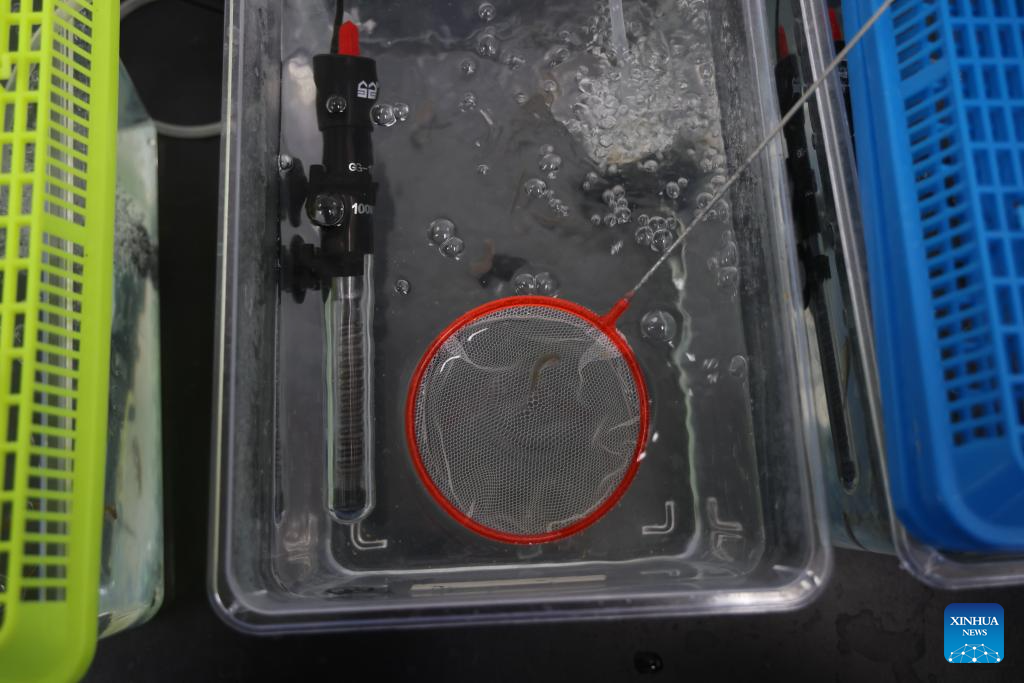
A staff member observes the condition of the zebrafish for backup at Jiuquan Satellite Launch Center in northwest China, April 25, 2024. The three taikonauts aboard China's Shenzhou-18 spaceship have entered the country's space station and met with another taikonaut trio on Friday, starting a new round of in-orbit crew handover.
A unique task for the taikonauts of Shenzhou-18 is to create an "aquarium" and raise fish in zero gravity.
They will create a simplified version of an aquatic ecosystem using zebrafish and algae to study how the space environment affects their growth and system balance. (Xinhua/Jin Liwang)
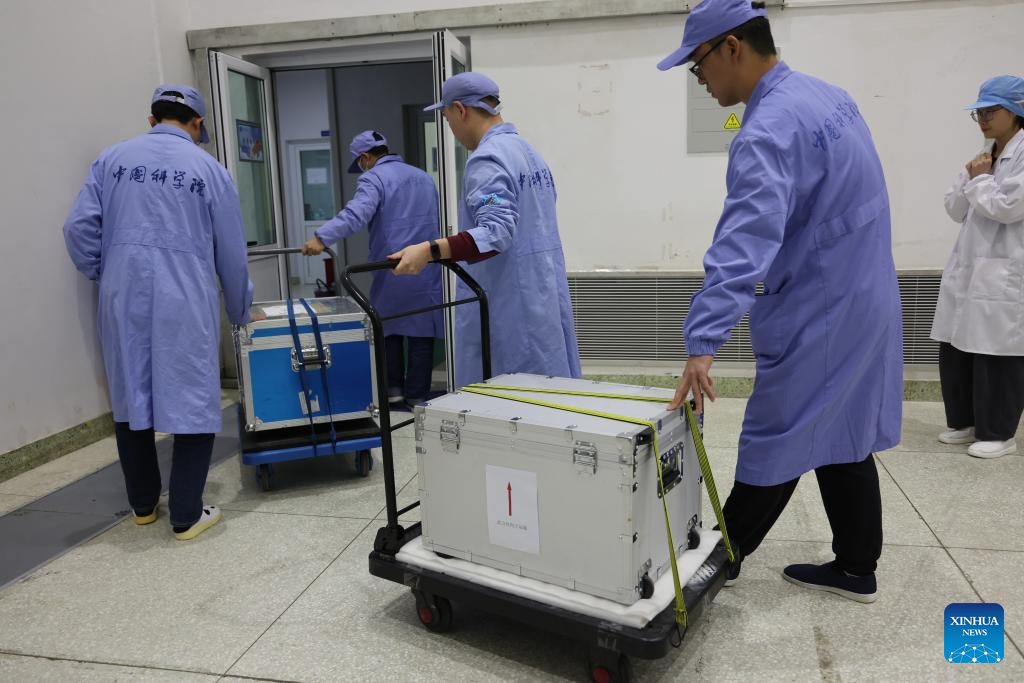
Staff members transfer the integrated aquatic ecosystem sample for the Shenzhou-18 spaceflight mission at Jiuquan Satellite Launch Center in northwest China, April 25, 2024. The three taikonauts aboard China's Shenzhou-18 spaceship have entered the country's space station and met with another taikonaut trio on Friday, starting a new round of in-orbit crew handover.
A unique task for the taikonauts of Shenzhou-18 is to create an "aquarium" and raise fish in zero gravity.
They will create a simplified version of an aquatic ecosystem using zebrafish and algae to study how the space environment affects their growth and system balance. (Xinhua/Jin Liwang)
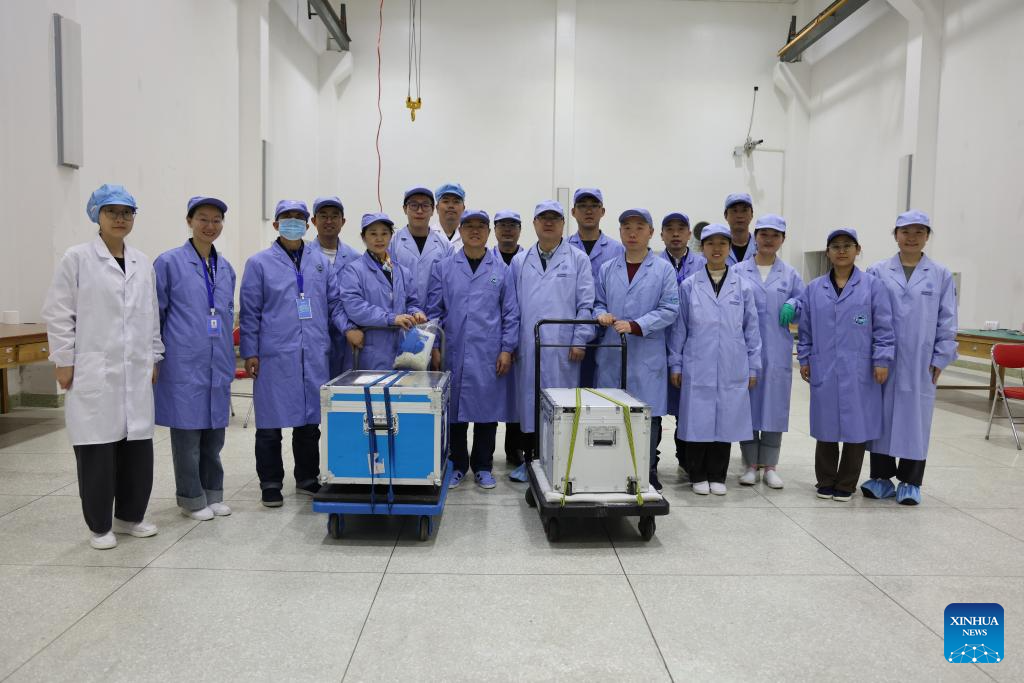
Staff members pose for a group photo with the integrated aquatic ecosystem sample for the Shenzhou-18 spaceflight mission at Jiuquan Satellite Launch Center in northwest China, April 25, 2024. The three taikonauts aboard China's Shenzhou-18 spaceship have entered the country's space station and met with another taikonaut trio on Friday, starting a new round of in-orbit crew handover.
A unique task for the taikonauts of Shenzhou-18 is to create an "aquarium" and raise fish in zero gravity.
They will create a simplified version of an aquatic ecosystem using zebrafish and algae to study how the space environment affects their growth and system balance. (Xinhua/Jin Liwang)
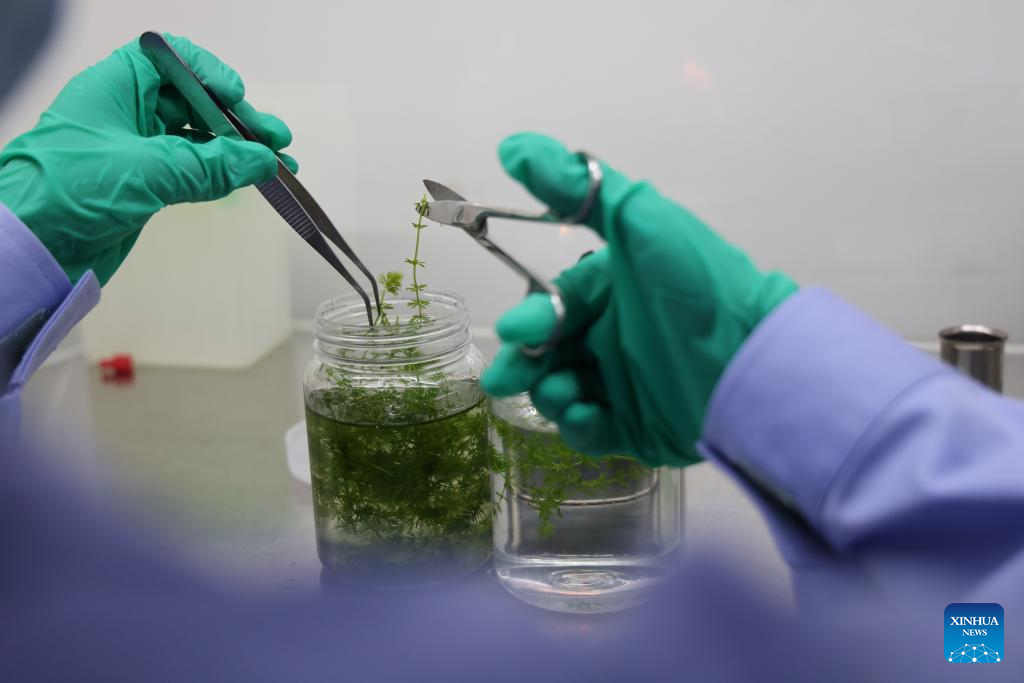
A staff member processes the algae at Jiuquan Satellite Launch Center in northwest China, April 25, 2024. The three taikonauts aboard China's Shenzhou-18 spaceship have entered the country's space station and met with another taikonaut trio on Friday, starting a new round of in-orbit crew handover.
A unique task for the taikonauts of Shenzhou-18 is to create an "aquarium" and raise fish in zero gravity.
They will create a simplified version of an aquatic ecosystem using zebrafish and algae to study how the space environment affects their growth and system balance. (Xinhua/Jin Liwang)
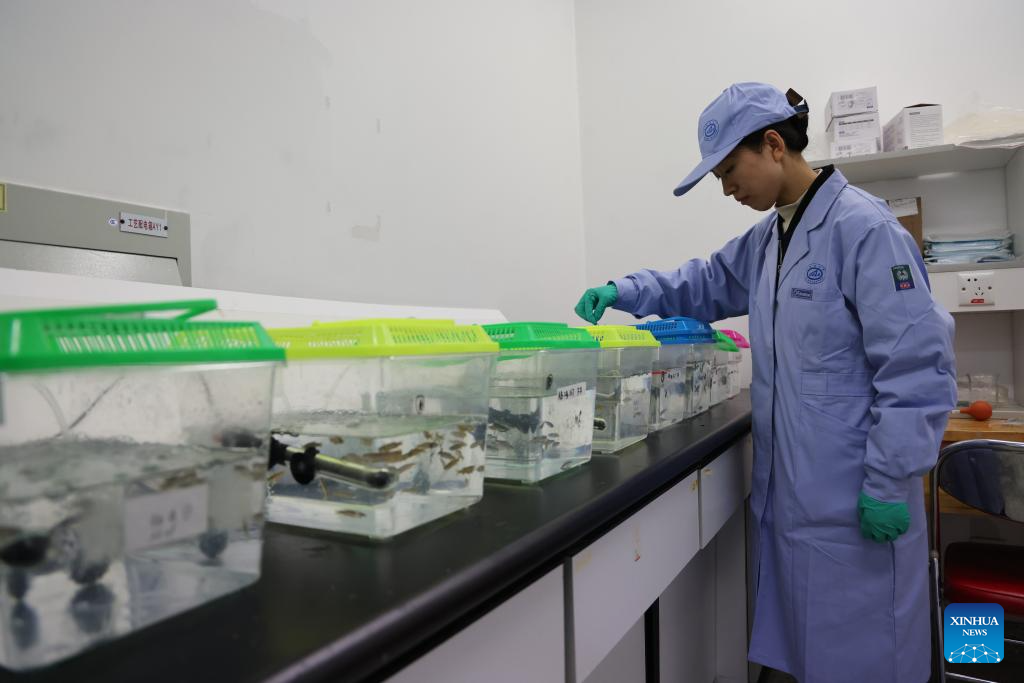
A staff member observes the condition of the zebrafish for backup at Jiuquan Satellite Launch Center in northwest China, April 25, 2024. The three taikonauts aboard China's Shenzhou-18 spaceship have entered the country's space station and met with another taikonaut trio on Friday, starting a new round of in-orbit crew handover.
A unique task for the taikonauts of Shenzhou-18 is to create an "aquarium" and raise fish in zero gravity.
They will create a simplified version of an aquatic ecosystem using zebrafish and algae to study how the space environment affects their growth and system balance. (Xinhua/Jin Liwang)



